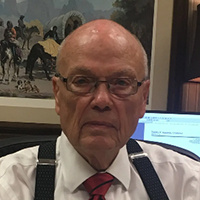Eureka White Collar Crime Lawyer, Kansas
Sponsored Law Firm
-
 x
x

Click For More Info:
-
The Law Offices of Richard L. Cooper, P.A.
848 Brickell Avenue Suite 800 Miami, FL 33131» view mapDWI/DUI, Drug Trafficking, Felony Nationally Ranked Top 40 Under 40
With Richard L. Cooper you can expect a trusted confidant who will work diligently to fully understand your case and determine a road map to help you regain control of your life.
800-756-2781
Not enough matches for Eureka White Collar Crime lawyer.
Below are all Eureka Criminal lawyers.
Stanley R. Ausemus
✓ VERIFIEDAccident & Injury, DUI-DWI, Criminal, Bankruptcy & Debt, Divorce & Family Law
Here at the law offices of Stanley R. Ausemus, Chartered, my mission is to provide quality legal support and counsel to my clients. I have a reputatio... (more)
Rand Eugene Simmons
Family Law, Divorce & Family Law, White Collar Crime, Criminal
Status: In Good Standing
James Campbell
Divorce & Family Law, White Collar Crime, DUI-DWI, Criminal, Business
Status: In Good Standing
James R. Campbell
Real Estate, Family Law, Divorce & Family Law, White Collar Crime, Accident & Injury
Status: In Good Standing Licensed: 34 Years
Phyllis K. Webster
Lawsuit & Dispute, Divorce & Family Law, Criminal
Status: In Good Standing Licensed: 38 Years
Steven C. Sherwood
Estate, Divorce & Family Law, Criminal
Status: In Good Standing Licensed: 51 Years
Darren K. Patterson
Juvenile Law, Traffic, Divorce & Family Law, Criminal
Status: In Good Standing Licensed: 35 Years
FREE CONSULTATION
CONTACT
 Richard L. Cooper Miami, FL
Richard L. Cooper Miami, FL AboutMiami Attorney at Law
AboutMiami Attorney at Law ServicesCriminal Defense
ServicesCriminal Defense

